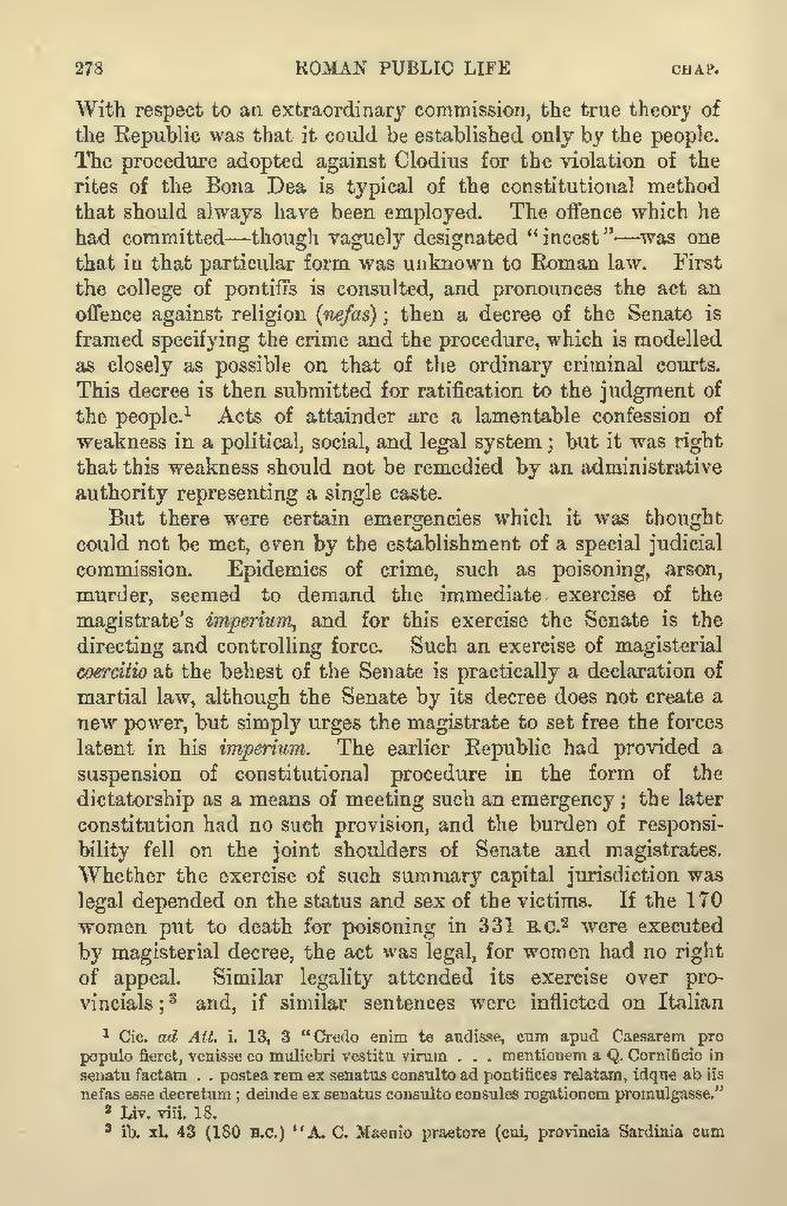With respect to an extraordinary commission, the true theory of the Republic was that it could be established only by the people. The procedure adopted against Clodius for the violation of the rites of the Bona Dea is typical of the constitutional method that should always have been employed. The offence which he had committed—though vaguely designated "incest"—was one that in that particular form was unknown to Roman law. First the college of pontiffs is consulted, and pronounces the act an offence against religion (nefas); then a decree of the Senate is framed specifying the crime and the procedure, which is modelled as closely as possible on that of the ordinary criminal courts. This decree is then submitted for ratification to the judgment of the people.[1] Acts of attainder are a lamentable confession of weakness in a political, social, and legal system; but it was right that this weakness should not be remedied by an administrative authority representing a single caste.
But there were certain emergencies which it was thought could not be met, even by the establishment of a special judicial commission. Epidemics of crime, such as poisoning, arson, murder, seemed to demand the immediate exercise of the magistrate's imperium, and for this exercise the Senate is the directing and controlling force. Such an exercise of magisterial coercitio at the behest of the Senate is practically a declaration of martial law, although the Senate by its decree does not create a new power, but simply urges the magistrate to set free the forces latent in his imperium. The earlier Republic had provided a suspension of constitutional procedure in the form of the dictatorship as a means of meeting such an emergency; the later constitution had no such provision, and the burden of responsibility fell on the joint shoulders of Senate and magistrates. Whether the exercise of such summary capital jurisdiction was legal depended on the status and sex of the victims. If the 170 women put to death for poisoning in 331 B.C.[2] were executed by magisterial decree, the act was legal, for women had no right of appeal. Similar legality attended its exercise over provincials;[3] and, if similar sentences were inflicted on Italian*
- ↑ Cic. ad Att. i. 13, 3 "Credo enim te audisse, cum apud Caesarem pro populo fieret, venisse eo muliebri vestitu virum . . . mentionem a Q. Cornificio in senatu factam . . . postea rem ex senatus consulto ad pontifices relatam, idque ab iis nefas esse decretum; deinde ex senatus consulto consules rogationem promulgasse."
- ↑ Liv. viii. 18.
- ↑ ib. xl. 43 (180 B.C.) "A. C. Maenio praetore (cui, provincia Sardinia cum
